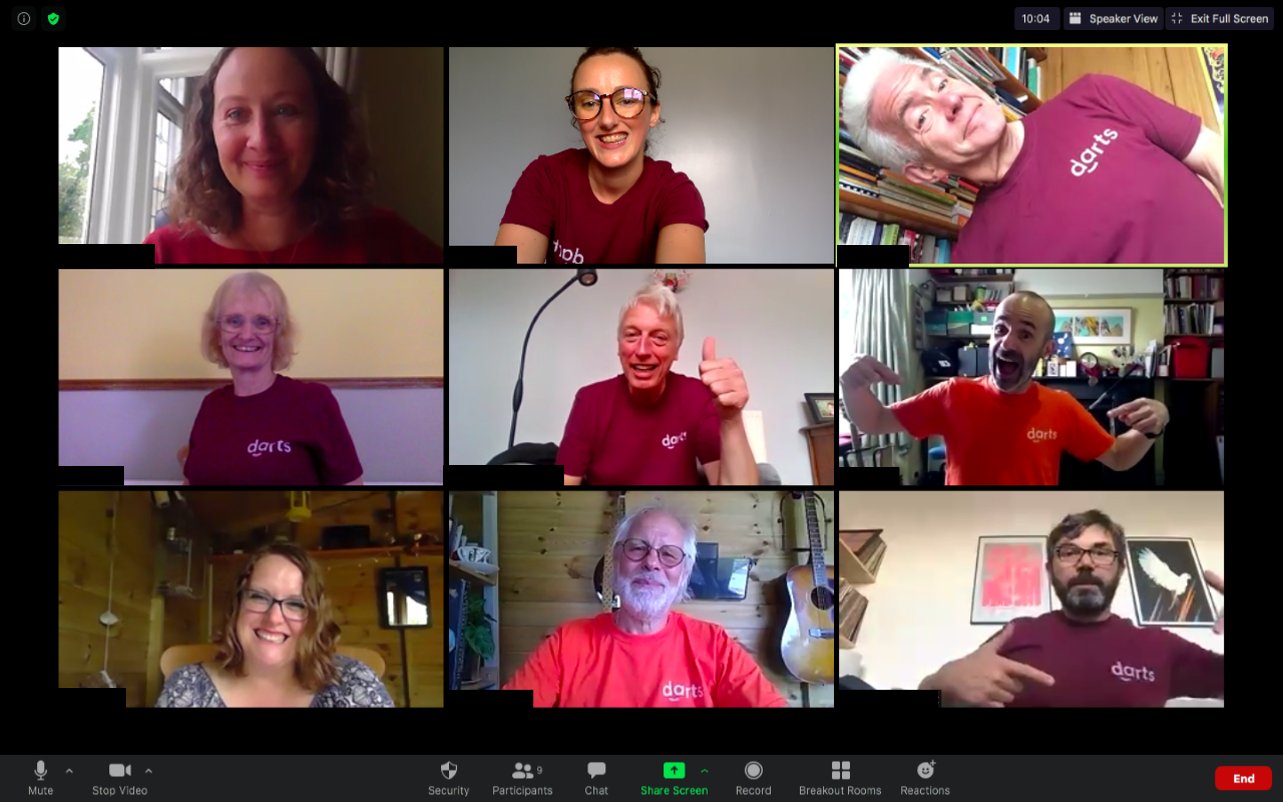In the spirit of continuing to share our learning, we have compiled our top tips from our grantees on remote delivery.

2020 was the year our grantees experimented with remote delivery. Here’s what they learned.

Throughout 2020, we organised a series of virtual gatherings to share the swathes of insights emerging across our portfolio in real time. With tighter restrictions returning in November, we turned our attention back to the idea of remote delivery, and brought our grantees together to share their experiences. Ranging from swapping top tips for delivering participatory Zoom sessions, to sharing the impact of postcards, phone calls, deliveries and even doorstep music sessions, it is humbling – and entirely unsurprising – that the Spirit ‘family’ has always kept its participants at the centre of their planning. At a time when social connectedness has become so thin on the ground, our partners worked tirelessly to maintain relationships, and ensure that loneliness, inactivity and poor wellbeing would not become the dominant narratives as we emerge from restrictions.
For many people working to build greater connection, understanding and to improve wellbeing in their communities, digital and remote delivery will remain the norm for some time. It is likely that we will continue to see a blend of remote and in-person delivery mechanisms across the community and voluntary sector, even after the pandemic has passed. The fact remains that there are some who may never have connected with projects had we not been forced to offer socially-distant engagement. In the spirit of continuing to share our learning, we have compiled our top tips from our grantees at this time.

Pick up the phone!
‘Phone circles’, or small conference calls, can be a great way of connecting with participants if they can’t use Zoom. We know that participants are missing most is the opportunity for a cup of tea and a chat, so this is a simple but effective way to conduct a remote gathering.
Continuing regular calls with the most vulnerable participants regardless of whether they are also engaged in online sessions is an effective way to get feedback and learn what works, and what you could do better. For some, your call may be the only conversation they have had that week. A small act like this may boost a socially isolated individual’s mood immeasurably.
Use digital with diligence
Delivering training online is a cost-effective way of upskilling volunteers and freelance staff, and ensures a wide range of people can benefit from a session regardless of where they are in the country or world!
Online delivery may complement face-to-face delivery in future for some projects. Developing a blended approach is likely to be the way forward for many so that new digitally-engaged participants −or those who now prefer digital engagement for a range of reasons – are not left behind when the pandemic is over.
The length of online sessions should be carefully considered. At what point do you lose people’s focus? Are there opportunities for people to work on something themselves and come back together throughout the session?
Digital delivery does not always need to take place on Zoom or Teams or live video conferencing software. Having participants record responses to challenges or activities and send these audio or video files to you in their own time can also be effective, and potentially more suitable for some.
Tapping into local services or support networks can aid digital participation. If someone cannot take part due to a lack of wifi or device, are there any local support schemes that can help them? Spirit grantees have reported collaborating with family members, local charities, and social and health service colleagues to coincide visits to participants with the timings of their sessions, so that a trusted person is there to help them get online and take part.
Just because it wasn’t immediately successful, it doesn’t mean that digital delivery won’t work at all. Adapting to a new way of working is all about trial and error, and doing so online involves having to learn new skills. Your participants may get used to it as you refine your online working practice.

Test, rollout, refine
Feedback is your friend! If you think something did not work well, ask the people involved how they found it before you toss the idea out completely. Your participants often have innovative solutions or suggestions that you may never have thought of. These conversations can also help you build your qualitative impact evidence base at a time when quantitative data is challenging to gather.
Finally, don’t forget the golden rule
Social time is so important. Sharing experiences of challenges, successes and general chat are all a part of what make group participation successful. It is just as important to create a comfortable and fun atmosphere in a digital space as it is in a physical one. Likewise, finding creative ways for a conversation to continue without the internet or even a telephone can be a refreshing and creative act in itself. Who doesn’t love when a postcard or handwritten letter arrives in the post?
This festive season, we’d like to extend a big thank you to all of our grantees for their resilience, their openness, and their unwavering commitment to their communities during this most challenging year.
